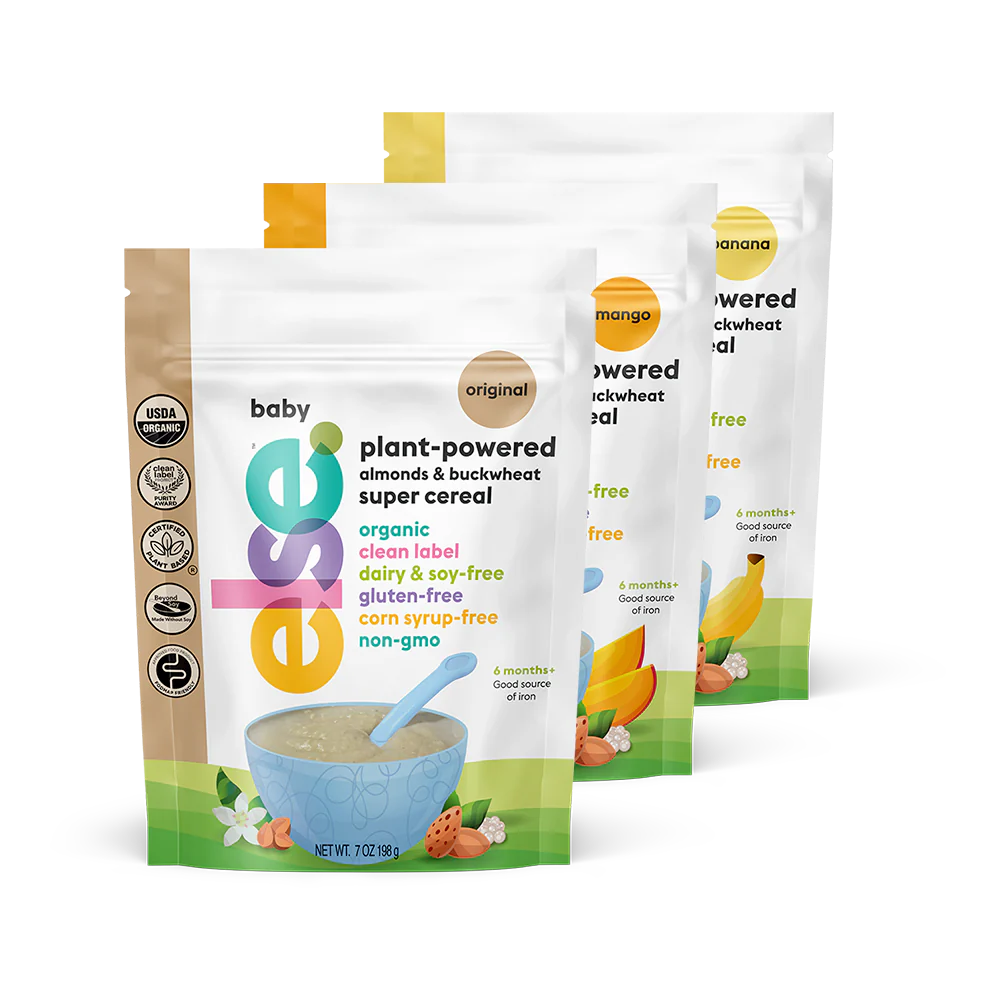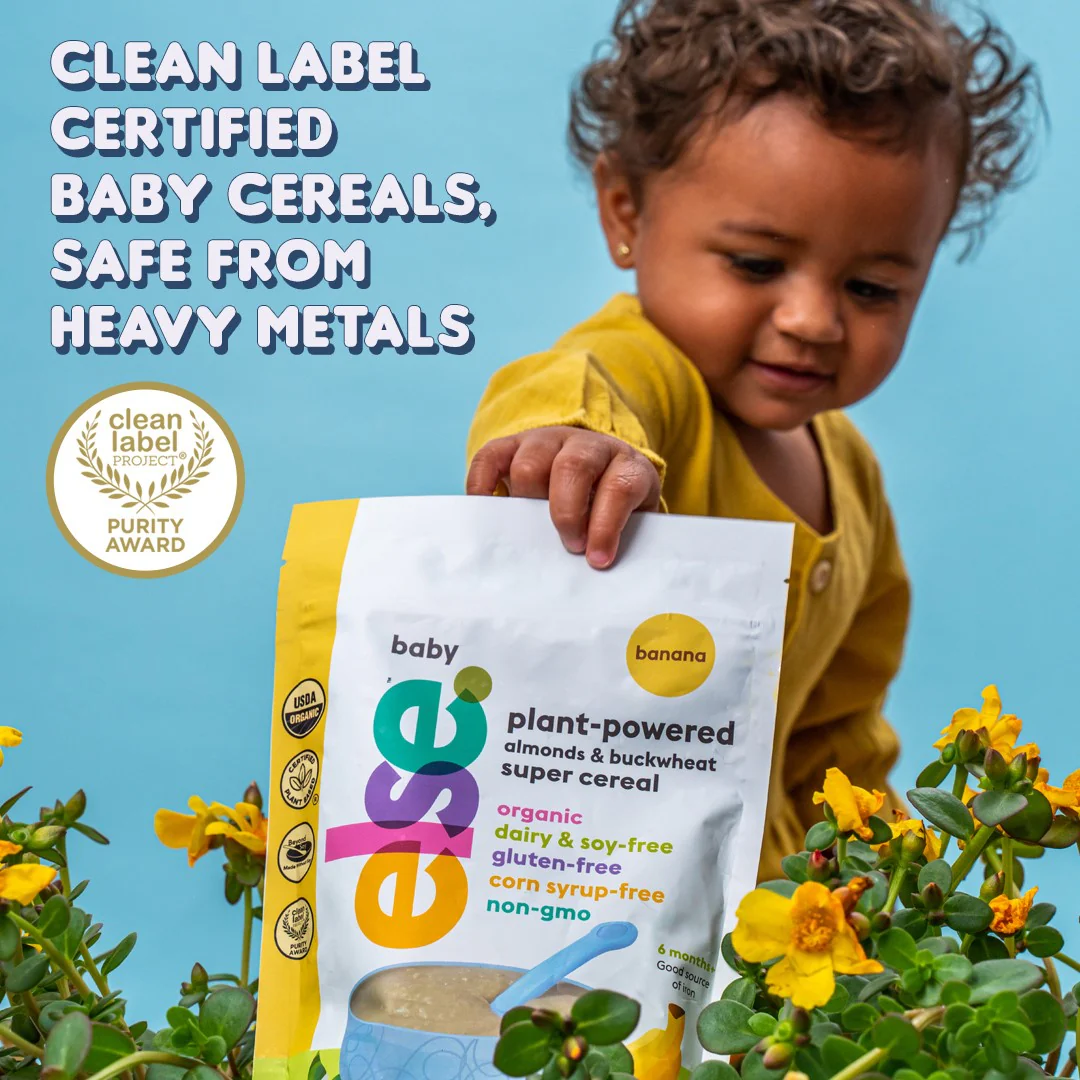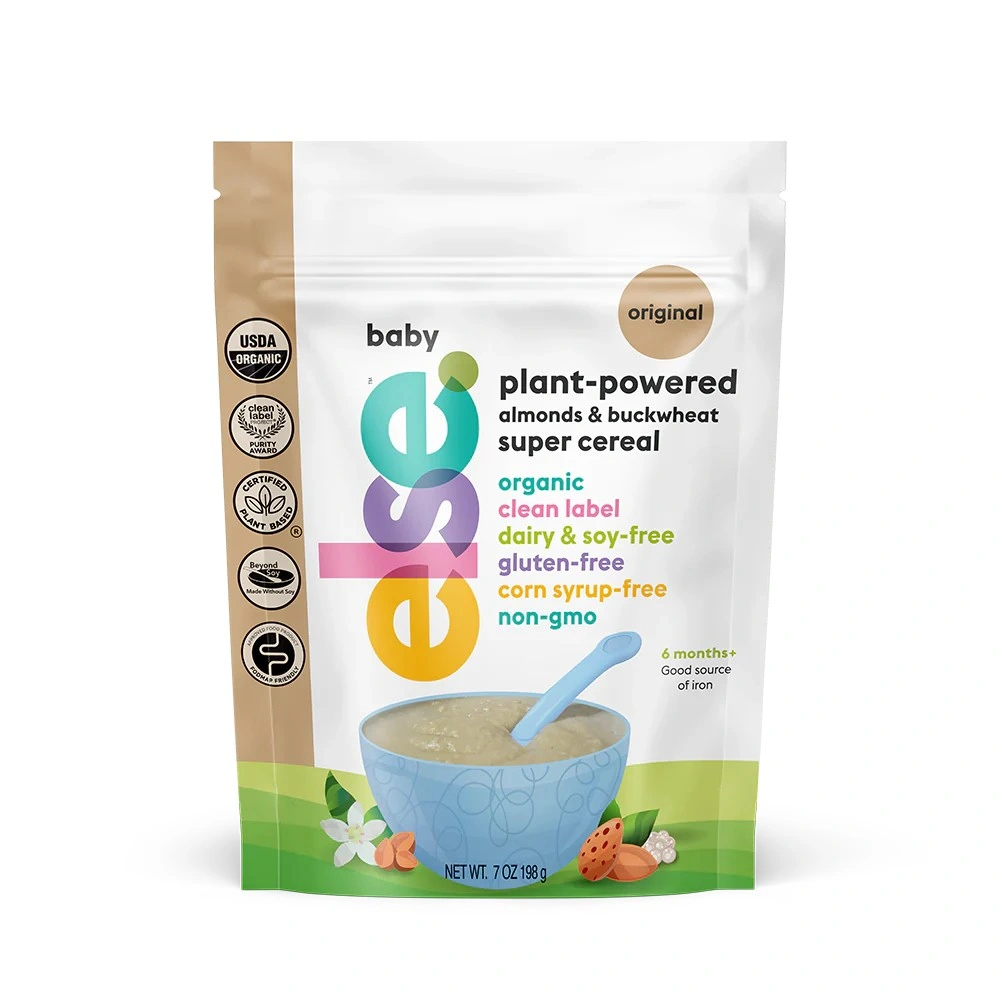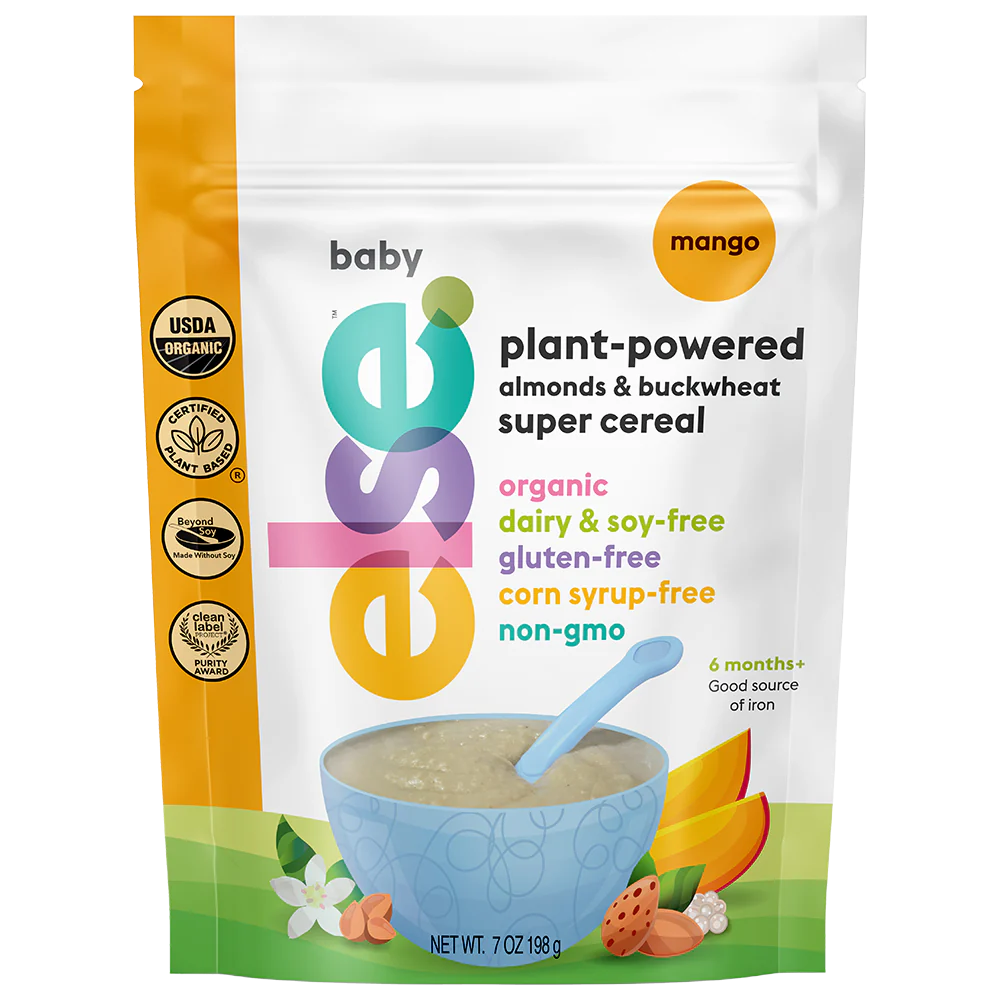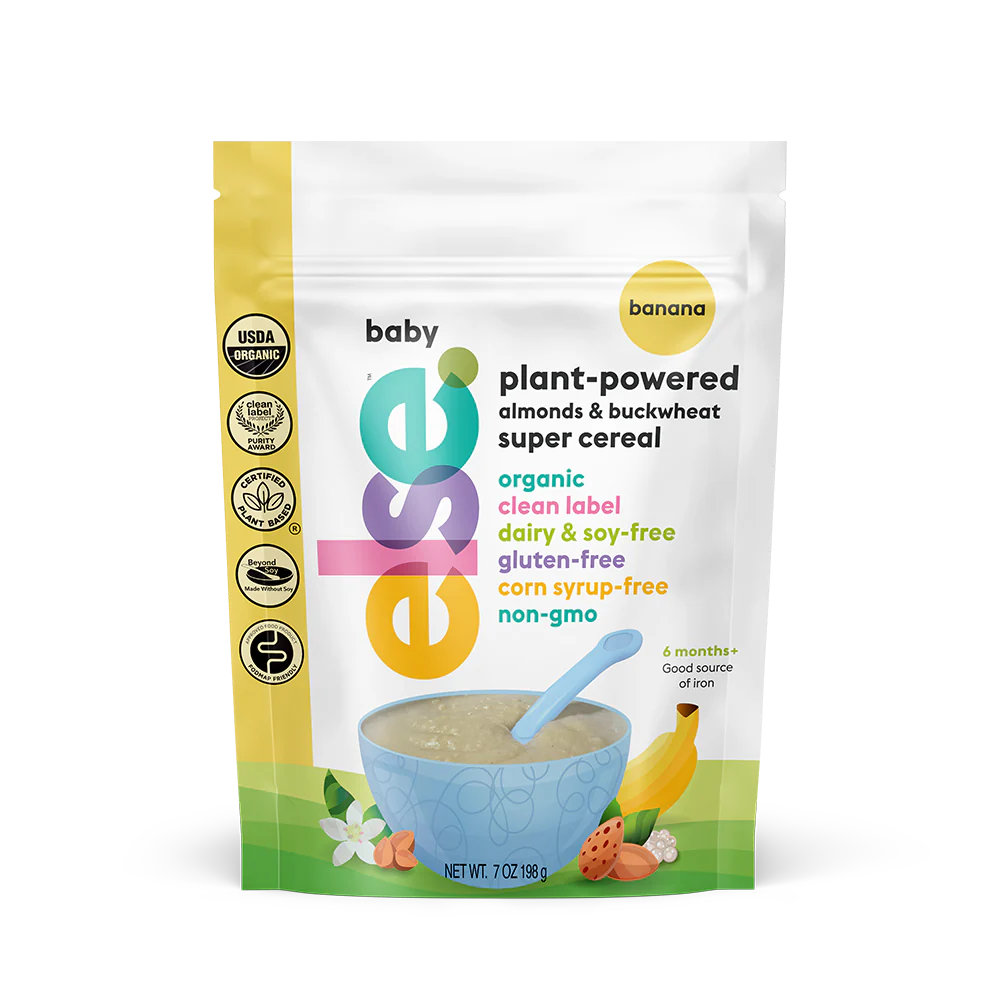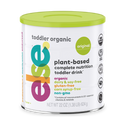Dietary Fat Needs for Infants and Toddlers
Learn more about types of fats and how much of them does your baby or toddler need per day for optimal health and nutrition.
Updated May 27, 2024

For years, parents have continuously looked for ways to give their babies or toddlers a healthier diet. From looking into a healthier alternative to cow milk for babies, or the best hypoallergenic formula. But did you know there are healthy fats for toddlers?
Fat is one of the most widely talked about nutrients in our diet. While there are many opinions around fats in an adult diet, there’s no question that fats - including what kinds and how much - are incredibly important for a child’s diet.
Fat is an essential nutrient and plays many important roles in the growth and development of babies and toddlers. Fats can be found in a wide variety of foods on both ends of the spectrum when it comes to healthiness.
Here’s what to know about healthy fat for infants and toddlers, and the best places to find them.
» Boost your child's fat intake with this omega-rich toddler formula
Importance of Fat for Babies and Toddlers
Fat is a critical component of a young child’s diet, and as such, should make up a significant portion of the child’s caloric intake.
The body uses fat as a fuel source, but it is also stores fat cells for future use. The body uses fat to insulate organs, make hormones, and protect nervous system tissues.
For babies and toddlers in particular, fats are also crucial for growth and weight gain. It also helps the body absorb fat-soluble vitamins like vitamins A, D, E, and K, which are important components in a nutritious diet.
Furthermore, since fats are full of calories, small servings will be enough. Plus, consuming the right amount will help increase immunity and brain function because it has DHA, a fatty acid, one of the omega 3 acids, as well as help keep your eyes, hair, skin, and nails healthy.
Fats are also found in healthy food like avocados, soy products, olives, nuts, seeds, as well as in plant oils. They are, also found in many processed, packaged snacks, baked goods, and fast food items. However, it is important to control your baby or toddler’s consumption.
» Read more about pediatrician's review on nutritional and healthy diet for kids
Saturated fat
These are found in animal products like meat, eggs, and dairy products, as well as in coconut and coconut oil. Diets high in saturated fat can raise blood cholesterol levels and may increase risk for heart disease. That is why it is important to know the sustainability formula used in making your baby’s milk
Unsaturated fat
Unsaturated fats are found in plant foods and all other types of vegetable oil. They’re considered neutral and even beneficial for heart health.
Trans fat
Trans fats are unhealthy fats found naturally in many animal products. They can also be human-made and added to things like commercial snack foods, baked goods, and spreads. Trans fats are often listed as "partially hydrogenated" on the ingredient list.
Infant Fat Needs
Breast milk and infant formula are essential sources of fat for newborns and babies. During the first year of life, these sources will provide 40-50% of calories for infants. Body fat increases twice as much as muscle does between 2-6 months of age. Therefore, you might say that fat is more important than protein in the early stages of life.
Restricting fat before the age of two may actually be dangerous and is not recommended. One year old babies should be getting approximately 40% of their calories from fat.
For infants, healthy sources of fat besides breast milk and infant formula may be introduced among the first foods between 4-6 months of age. Some examples of healthy fats as first foods include mashed avocado, flax seed, pureed veggies with a little olive oil, and baby oatmeal with thinned peanut butter. A good rule of thumb is to include a fat source every time your child eats. A perfect choice for your baby's optimal fat nutrition is Else Nutrition's Baby Super Cereal, crafted from the finest source of healthy fats - almonds.
» Learn more about protein needs of infants and toddlers
Toddler Fat Needs
Continue to incorporate fats in baby food and snack times for toddlers. Toddlers over age two should not be restricting healthy fat intake unless deemed appropriate by a doctor or dietitian. In fact, toddlers ages 2-3 years old should still be getting 30-35% - or approximately one third - of their calories from fat.
Toddlers can find healthy fats in solid foods like whole grain breads and grains, beans, legumes, soy foods, full-fat plant milks, nut and seed butters like almond butter, and vegetable oils. Parents may also choose to supplement their child with a plant-based toddler formula like that from Else, which offers 9 grams of total fat in a 240 ml serving made with the formula powder.
Here are some examples of the fat content in some plant-based foods for babies and toddlers:
- ½ an avocado = 15 grams
- 3 oz tofu = 4 grams
- 2 Tbsp hummus = 4 grams
- 2 Tbsp peanut butter = 16 grams
- 1 Tbsp olive oil = 13 grams
Fats are an important nutrient for growing infants and toddlers, and healthy fats can be found in a wide variety of plant-based foods once your child starts to wean from breast milk or infant formula. Another great way to easily incorporate healthy fats into your child’s diet is with the high-quality line of Else Nutrition’s plant-based formula and also nutritional drinks or shakes.
» Discover an alternative to Enfagrow toddler formula
The content and advice provided in this article is for informational purposes only and is not a substitute for medical diagnosis, treatment, advice for specific medical conditions. Always consult a pediatrician to understand the individual needs of your child.




